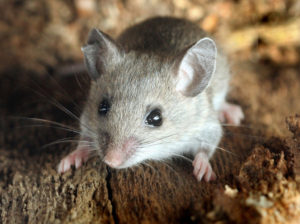 In many parts of the United States, there are efforts underway to try and restore native grasslands. This is a difficult process as it takes considerable time to get the grass to grow to the proper height and thickness. Grassland conservation organizations must also contend with drought, heat and disease. These can all affect the grass and hinder growth.
In many parts of the United States, there are efforts underway to try and restore native grasslands. This is a difficult process as it takes considerable time to get the grass to grow to the proper height and thickness. Grassland conservation organizations must also contend with drought, heat and disease. These can all affect the grass and hinder growth.
There is another problem that has plagued grassland conservation efforts that is somewhat unexpected. In some parts of the country, the new grass seeds will be planted, and the field mice will eat the grass seeds right up. The grass never has a chance to establish itself.
Scientists have been working on a solution to this problem for several years. They wanted to find a non-toxic solution for both the grasslands and the mice living in them.
Scientists have now come up with the solution that they were hoping to find. There is a substance contained in hot peppers called capsaicin. This is the ingredient that makes the peppers taste hot. When this substance is placed as a coating on the grass seeds, the mice stay away. They don’t want any part of that hot taste.
Finding out about the effects of capsaicin on mice was just part of the problem. Scientists had to find the right type of pepper to use for the coating. The coating has to be able to wear well in inclement weather situations. It wouldn’t be effective if the first rain washed it all away. Scientists also had to find a pepper coating that would not hinder the grass seeds from germination.
After four years of exhaustive research, scientists have found their pepper. The Bhut jolokia is a hot pepper that comes from India. Many refer to this pepper as the ghost pepper. This pepper is so hot that many people are not able to take one bite. The mice absolutely hate it.
Conservationists and scientists are happy with this result because of what it demonstrates for the future. It shows that natural and non-toxic solutions can be found to problems. Environmentally-friendly solutions are available if people will take the time to discover them.




